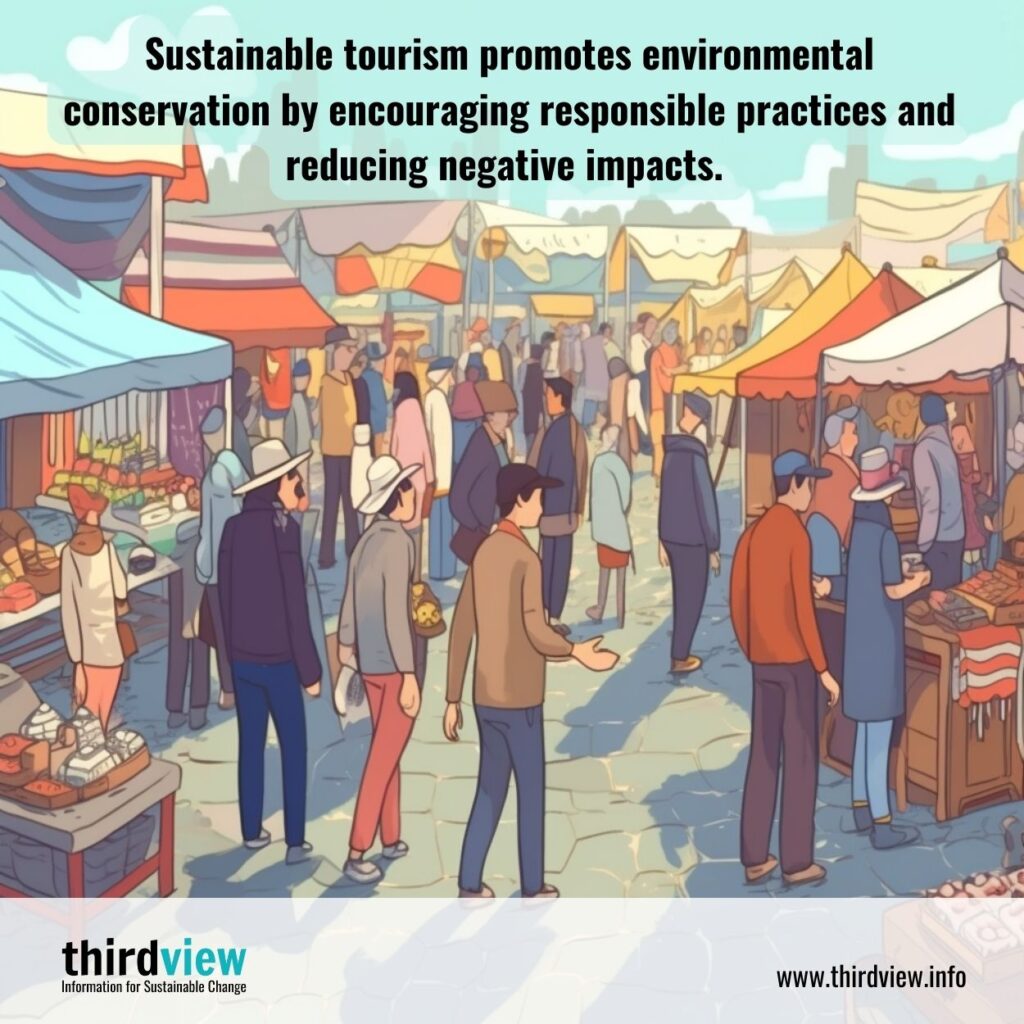Promoting tourism and supporting local products can greatly contribute to sustainable development. Tourism, in particular, has gained increasing recognition as an important contributor to the socio-economic development of nations. This blog post highlights the critical role played by tourism and local products in promoting sustainable development. We’ll delve into various reasons why local products and tourism are important for sustainability, as well as the challenges that come with implementing these concepts.
Economic benefits
Tourism is a vital industry that drives economic growth, job creation, and poverty alleviation. By visiting exotic locations, tourists create local jobs and stimulate economic growth. Supporting local products also contributes to economic growth. When people purchase locally grown or made products, they contribute to the local economy, creating a ripple effect of economic growth that supports sustainable development.
Environmental conservation
Sustainable tourism often focuses on reducing negative environmental impacts and promoting awareness of environmental challenges. Tourists contribute to environmental conservation efforts through environmentally responsible practices. These include energy and resource conservation, wildlife protection, and responsible waste management practices. Purchasing locally made products plays a big role in reducing environmental damage caused by long-distance shipping.
Promoting cultural heritage
Tourism is an effective way to promote cultural heritage. Visitors to destinations can learn about local customs, traditions, and history, providing an impetus for the preservation of cultural heritage. In addition to that, purchasing local products means that we are also supporting local crafts, traditions, and culture.
Overcoming challenges to sustainable development
While tourism and local products offer significant benefits for sustainable development, there are also challenges. For instance, mass tourism in some destinations has led to overcrowding, environmental degradation, and cultural transformation. Meanwhile, international trade agreements sometimes put local producers at a disadvantage with low-cost imports, leading to economic problems. As a society, we need to work together to establish actions that support sustainable development.
In conclusion, the role of tourism and local products in sustainable development cannot be overemphasized. Sustainable tourism and the purchase of locally made products contribute significantly to economic, environmental, and cultural growth. We can support sustainable development by playing our part in conserving the environment, building the local economy, and promoting the preservation of cultural heritage. As consumers, we have the power to make positive choices and contribute to sustainable development. Therefore, let’s adopt the idea that “one man’s trash is another man’s treasure” and support sustainable development through our everyday choices.


